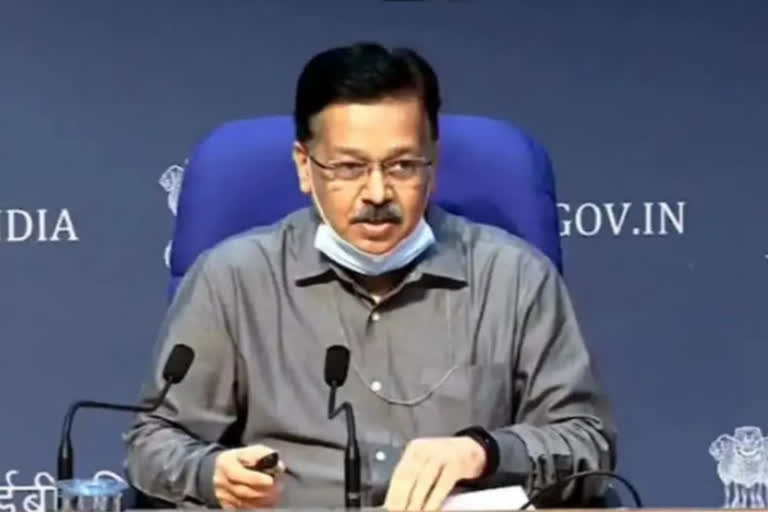New Delhi: Being aware of heatwaves in different places across the country, the Union Health Ministry on Tuesday dashed off a letter to all States and UTs suggesting them to participate in daily surveillance on heat-related illness under National Programme on Climate Change and Human Health (NPCCHH). The ministry also suggested people not venture out, especially between 12 pm and 3 pm.
In a letter sent to States and UTs, health secretary Rajesh Bhushan said that temperatures have already touched unusual highs at some places in the country and substantial deviations from expected normal temperature for this time of the year are also being reported from some States and districts.
"From March 1, 2023, daily surveillance on heat-related illness under National Programme on Climate Change and Human Health (NPCCHH) in all States and districts will be conducted on the Integrated Health Information Platform (IHIP). Please ensure that all the health facilities participate using existing P-form level login information and continue to keep line lists of cases and deaths as per prescribed formats," Bhushan said in his letter.
He said that the daily heat alerts, which are being shared by NPCCHH, National Centre for Disease Control (NCDC), Ministry of Health and Family Welfare with States indicate a forecast of a heatwave for the next few days and may be disseminated promptly in the district and health facility level.
"State, district and city health departments should ensure implementation of heat-related health action plans and support in planning, managing and assessing response to heat, along with responding agencies," Bhushan said. Health departments of the State must continue efforts on sensitisation and capacity building of medical officers, health staff, and grassroots level workers on heat illness, its early recognition and management, Bhushan said.
Also read: Centre asks States to take precautions against a possible outbreak of Japenese Encephalitis
"Health facility preparedness must be reviewed for the availability of adequate quantities of essential medicines, intravenous fluids, ice packs, ORS and all necessary equipment. Availability of sufficient drinking water at all health facilities and continued functioning of cooling appliances in critical areas must be ensured," Bhushan said.
The letter signed by Bhushan further said that health facilities need to increase resilience to extreme heat by arranging uninterrupted electricity for constant functioning of cooling appliances, installation of solar panels, energy conservation measures and measures to reduce indoor heat through cool/green roof, window shades, shade outside etc.
"Rainwater harvesting and recycling plants may also be explored for self-sufficiency in water," Bhushan said. The Health Ministry has also sent do's and don'ts regarding heatwaves. It said that although anyone at any time can suffer from heat stress and heat-related illness, some people are at greater risk than others and should be given additional attention.
"If some persons, including infants and young children, pregnant women, people working outdoors, people, who have a mental illness, physically ill people should allow one week for their bodies to acclimatised to the heat and should drink plenty of water," the Health Ministry suggested.



